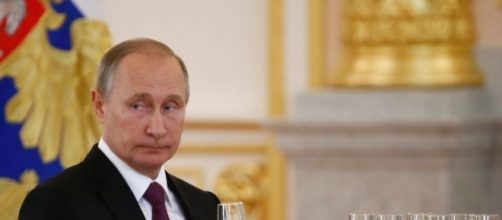As experts theorize about what the US missile strike on Syria could mean for future Russian relations with the US, many Americans have a particular question: why do Vladimir Putin and the 143 million Russian citizens he leads seem to hate us? What could a country like the US - one known for its freedoms and acceptance - have possibly done?
According to reports by the Business Insider and the Observer, it's this exact tolerance and acceptance that has Putin, his country, and much of the rest of the world at our throats.
Putin's first presidency proved extremely successful
The 64-year-old Vladimir Putin has been a leader of his country, in some aspect or another, for over 17 years. Sources say he became the acting president of Russia as early as 1999, continued his stint as the nation's leader until 2008, worked as the Prime Minister of Russia between 2008-2012, then was re-elected to the presidency later that same year. Reports indicate that during his first eight years, the country experienced near exponential economic growth - in fact, records show the nation's purchasing power grew a whopping 72 percent. The leader also managed to capitalize on the early 2000's rising oil and commodity prices, securing Russia's spot at the table in talks concerning international trade relations.
Putin's leadership ability has inspired love and support from his people
Sources claim that Putin did such an outstanding job governing his country that in 2008, when his term limit ended and incoming president Dmitry Medvedev took office, the new president immediately appointed him to the position of prime minister. Reports indicate that Putin had the highest approval rating of all world leaders at 81 percent, and, when the country altered future term limits from four to six years, Putin, who was newly eligible to run for election again, was a shoo-in for the presidency.
Simply put, Russians have loved their leader for quite some time.
'Religious nationalism' may have influenced Russian feelings about the West
But they also love their religion, and this seems to be where the conflict between the US and the former Soviet Union begins to take shape. According to the Business Insider, the Russian people are of a particularly fierce Orthodox Christian faith, and the West's acceptance of concepts like "feminism" and "gay rights" (among other freedoms that go against the culture of their beliefs) is, in their eyes, equivalent to devil-worship. According to the Observer, Putin, who has been coined, among other unsavory terms, "corrupt and deceptive," may have used the idea of a supposed "evil Western state" to foster an atmosphere of staunchly religious nationalism during the early years of his presidency.
Russian religious values are deemed just as important as national security
As time went on and Putin became the beloved savior of the people, the concoction of nationalism and religion more than likely grew strong enough to produce something more potent- a vehement dislike for nations, like the US, that stepped on the toes of that religion in an effort to accommodate people of all beliefs. Many a speech the former KGB officer has made since taking office gives basis to these claims. In Putin's own words, "Russia's 'spiritual shield' is (now) as important to her security as its nuclear shield"- meaning that, over time, Russians have come to believe a country who offends their religious principles is, essentially, just as dangerous as one aiming twenty nuclear warheads at them.
US-Russia relations could continue to plummet
If these claims prove true, then as long as the largely democratic US continues to pass laws and propose amendments to break down previous religious and cultural barriers, tensions between the land of the free and a religious, nationalistic Russia could very well intensify.

